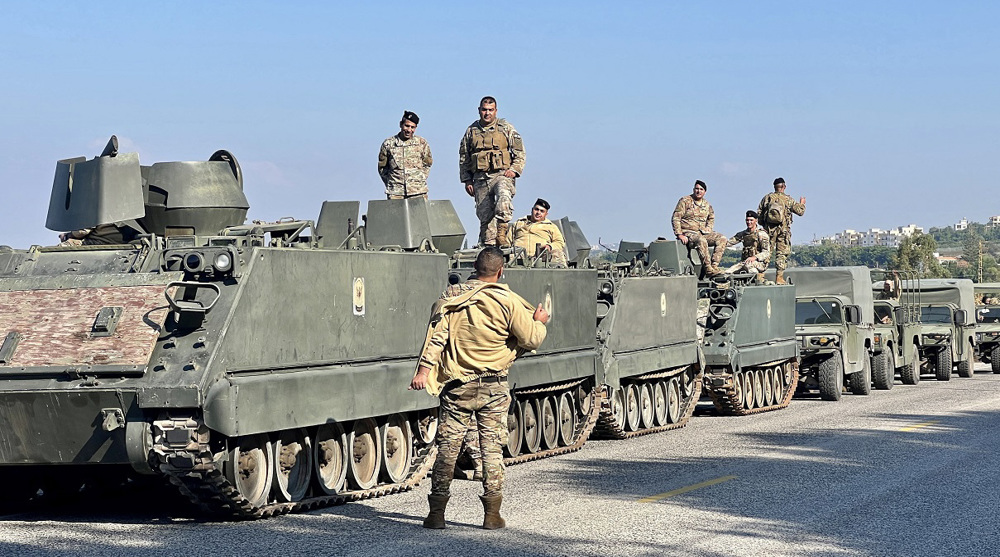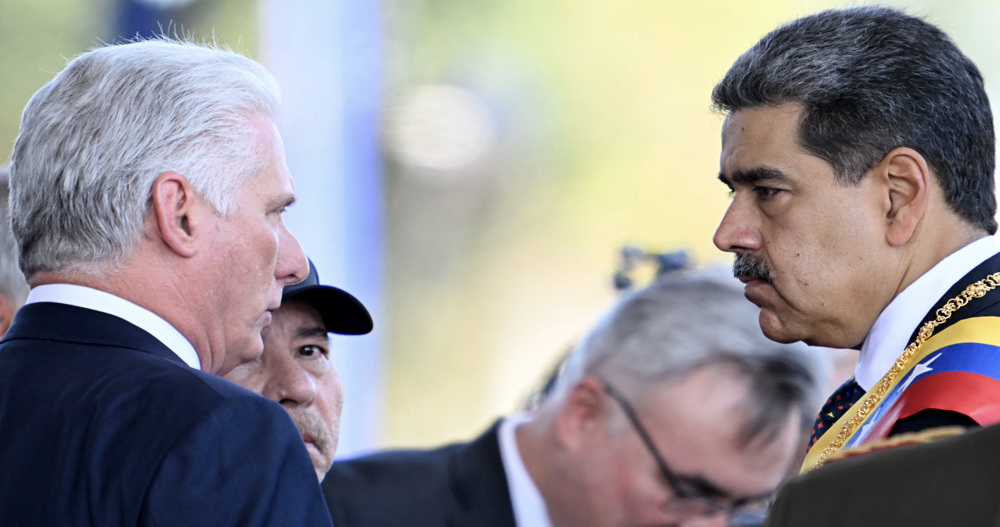Gen. Stewart: Iran building military capacity, a threat to US interests
The director of the Defense Intelligence Agency (DIA) has warned that Iran continues to build up its military capacity, posing a threat to US strategic interests in the Middle East region.
During testimony at a recent congressional hearing, Lieutenant General Vincent R. Stewart listed the Islamic Republic of Iran as among the “global threats” and said the "security challenges" the US faces today are "more diverse and complex than those we have experienced in our lifetimes."
“We continue to assess that Iran’s goal is to develop capabilities that would allow it to build missile-deliverable nuclear weapons, should a decision be made to do so,” he told the House Armed Services Committee in a prepared statement.
The DIA chief said that Iran “faces no insurmountable technical barriers to producing a nuclear weapon, making Iran's political will the central issue."
The US and some of its allies have repeatedly accused Iran of pursuing non-civilian purposes in its nuclear energy program.
Iran rejects the allegation, arguing that as a committed signatory to the nuclear Non-Proliferation Treaty (NPT) and a member of the International Atomic Energy Agency (IAEA), it has the right to use nuclear technology for peaceful purposes.
ISIL to expand its global outreach in 2015
The threats from al-Qaeda and the ISIL terrorist group topped the list of Stewart’s threat assessment.
The three-star general told lawmakers that ISIL is spreading throughout the Middle East and is establishing affiliates in North Africa to rival al-Qaeda that also remains capable of launching attacks.
“Particularly concerning has been the spread of ISIL beyond Syria and Iraq,” Stewart said. “With affiliates in Algeria, Egypt, Libya, the group is beginning to assemble a growing international footprint that includes ungoverned and under governed areas.”
“In 2015, we expect ISIL to continue its outreach to other elements of the global extremist movement, and to continue benefitting from a robust foreign terrorist fighter flow,” Stewart said.
The DIA chief’s comments come as the United States and its Arab allies have pursued a policy of arming and training “moderate” militants in Syria to fight the government of President Bashar al-Assad. Many of those battle-hardened militants later joined forces with the more extreme ISIL group.
Pentagon nominee vows to take on Iran

President Barack Obama’s pick to run the Defense Department, Ashton Carter, was also grilled Wednesday by senators, who seized on his confirmation hearing to criticize the White House on many foreign policy fronts.
Appearing before the Senate Armed Services Committee considering his nomination, the veteran Pentagon official said the threats posed by Iran were as serious as those posed by the ISIL terrorist organization.
Carter attempted to appease the pro-Israeli Republicans on the powerful Senate panel, including Sen. John McCain of Arizona, by making a pledge to confront Iran as the fourth secretary of defense under Obama.
“They have the ambition to wipe off the map other states in the region, namely Israel. They have a long history of behaving in a disruptive way, of supporting terrorism, of trying to undermine other governments of operating around the world. … They’re not the kind of people you want to have nuclear weapons,” he said.
US weighs sending lethal arms to Ukraine
Carter also said that he was “inclined” toward providing weapons to Ukraine to help battle pro-Russian fighters.
“I am very inclined in the direction of providing them with arms, including… lethal arms,” Carter said when asked by Sen. McCain, the committee chairman, if he supported sending weapons to Ukraine.
Washington is reportedly considering providing Ukrainian forces with lethal weapons.
When asked about the risks of escalation of the conflict, Carter replied that “the economic and political pressure on Russia has to remain the main center of gravity of our effort in pushing back.”
The US and its allies accuse Moscow of sending troops into eastern Ukraine in support of the pro-Russian forces. Moscow, however, denies any involvement.
The United States and the European Union have imposed several rounds of sanctions on Russia, including visa bans and asset freezes.
HRJ/HRJ
Jan. 15: ‘Axis of Resistance’ operations against Israeli occupation
VIDEO | US fires: Criticism mounts over govt. failure to respond
VIDEO | Fears, hope in Gaza amid intensified ceasefire efforts
VIDEO | Press TV's news headlines
Hamas: Ceasefire agreement result of steadfastness, resistance in Gaza over 15 months
Hamas thanks Iran, Resistance Front following achievement of ceasefire in Gaza
'Capitulation': Israeli officials and media concede Gaza defeat as truce unfolds
'Gaza has won': Social media users react to ceasefire with mix of relief, joy










 This makes it easy to access the Press TV website
This makes it easy to access the Press TV website